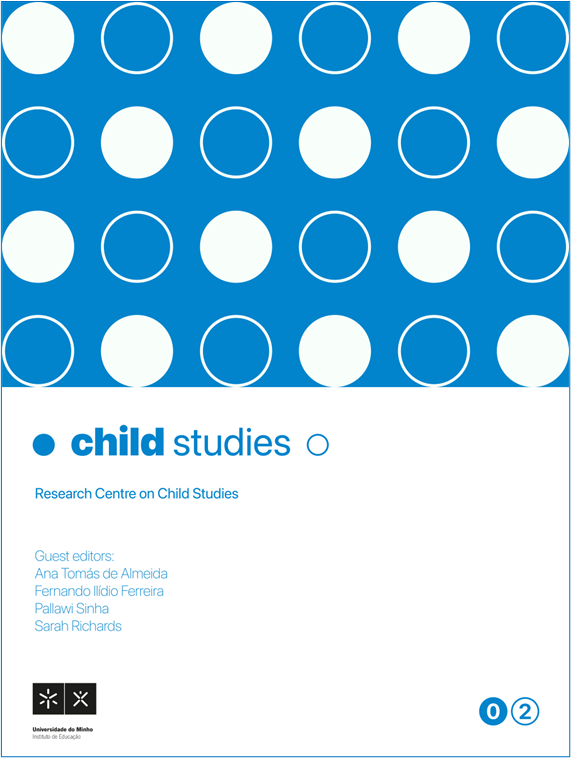A generative, critical childhood studies for uncertain times
DOI:
https://doi.org/10.21814/childstudies.4734Keywords:
childhood, critical childhood studies, children’s realities, decolonizing childhood studiesAbstract
This paper takes the theme of uncertainty as a starting point to argue for a critical childhood studies which does not only wish to produce knowledge about children and childhood but is also responsive to the calls of our uncertain times and seeks to produce knowledge that matters for children’s lives. To do this, the paper argues, it is important to critique and deconstruct the current conditions of children’s lives but to also produce the kind of knowledge which would have the capacity to offer us new insights into the possibilities for crafting alternative futures for children—with children—that address the uncertainties and difficulties which lie ahead. Developing a critical childhood studies will ultimately help the field move towards decolonising itself by becoming more inclusive and democratic as well as becoming more socially relevant by engaging with its diverse publics.
References
Abebe, T. (2019). Reconceptualising Children’s Agency as Continuum and Interdependence. Soc. Sci. 8(3), 81, https://doi.org/10.3390/socsci8030081
Alanen, L. (2011). Editorial. Critical Childhood Studies? Childhood 18(2), pp. 147–150. http://doi.org/10.1177/0907568211404511
Alvesson, M., Gabriel, Y., & Paulsen, R. (2017). Return to Meaning: A Social Science with Something to Say. Oxford University Press.
Liebel, M. (2020). Decolonizing Childhoods: From Exclusion to Dignity. Bristol University Press.
Smith, L. T. (2012). Decolonizing methodologies: Research and indigenous peoples (2nd ed.). Zed Books.
Spyrou, S. (2021). Editorial: A Preliminary Call for a Critical Public Childhood Studies. Childhood 28(2), 181-185. https://doi.org/10.1177/090756822098714
Spyrou, S. (2018). Disclosing Childhoods: Research and Knowledge Production for a Critical Childhood Studies. Palgrave Macmillan.
Spyrou, S. (2017). Editorial: Time to Decenter Childhood? Childhood 24(4), 433–437. https://doi.org/10.1177/09075682177259
Twum-Danso Imoh, A. (2022). Framing reciprocal obligations within intergenerational relations in Ghana through the lens of the mutuality of duty and dependence. Childhood, 29(3), pp. 439–454. https://doi.org/10.1177/09075682221103343
Downloads
Published
How to Cite
Issue
Section
License
Copyright (c) 2023 Spyros spyros

This work is licensed under a Creative Commons Attribution-NonCommercial 4.0 International License.



